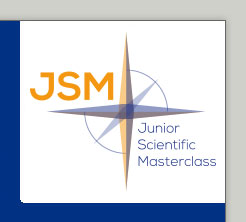Edit researchproject
In this email you'll find a link that you can use to edit the project on the website.
Only researchers that belong to the project can edit their project.
Please use the selectlist below to indicate which researcher you are. When you click the button 'Edit project', an email will be sent to the email of the selected researcher.
Project properties
| Title | Role of anesthetic and analgesic techniques in long-term survival after laparoscopic surgery for colon cancer |
|---|---|
| Keywords | anesthesia |
| Researchers |
Dr. D.J. Bosch Prof. dr. M.M.R.F. Struys |
| Nature of the research | Retrospective |
| Fields of study | anesthesiology immunology oncology |
| Background / introduction |
|---|
|
Surgical resection for cancer is still the mainstay of treatment. Although multimodal treatment of cancer patients has improved dramatically, there is increasing evidence that the method of anesthesia might improve cancer free survival. Anesthesia is known to influence the immune response, mostly in a negative way by depressing natural killer (NK) cell activity and T-cell lymphocytes. During surgical resection of a solid tumor, a well-functioning immune response is pivotal to eliminate micro-metastases. Further enhancements in survival might be achieved by a specific anesthetic regime with respect to physical defense mechanism for micro-metastases. The risk for micro-metastases during oncologic surgery is significant due to manipulation of a solid tumor causing the release of tumor cells in the vascular and lymphatic system. Positive perioperative circulating tumor cells are an independent risk factor for long-term outcome. The primary defense against these micro-metastases includes natural killer (NK) cells, cytotoxic T cells, mononuclear cells, and dendritic cells. From several studies it has been suggested that frequently used anesthetics and analgesics techniques might have a positive or negative influence on immunological performance and consequently on long-term survival. Maintenance of anesthesia is divided in total intravenous anesthesia (TIVA) or volatile inhalation anesthesia (INHA). Propofol is the most frequently used TIVA and is associated with a suppressed NK cell cytotoxicity and is recently in a large retrospective study associated with significant improved long-term outcome. Sevoflurane, a frequently used INHA, binds lymphocyte antigens which interfere with their activity. Epidural analgesia is one of the possible analgesic techniques that might contribute to a preserved NK cell activity. It attenuates the neuroendocrine stress response and reducing opioid requirements. It has been suggested that opioids have immunomodulatory effects resulting in both cell-mediated and humeral decreased immunity. Opioids also stimulate angiogenesis, an essential process in tumor development. |
| Research question / problem definition |
|---|
|
Is there a difference in long-term cancer free survival after laparoscopic surgery for colon cancer between the following anesthetic regimes: 1. volatile inhalational anesthesia (INHA) + opioids 2. total intravenous anesthesia (TIVA) + opioids 3. volatile inhalational anesthesia (INHA) + epidural 4. total intravenous anesthesia (TIVA) + epidural |
| Workplan |
|---|
| Together with the student we will create a new database of more than 1000 patients who underwent laparoscopic surgery for colon cancer. We will collect data from multiple hospitals in north-east Netherland. Data of this database will be used to answer our primary research question, but for motivated students, there will be opportunities to formulate their own research question. Participation in a randomized control trial with a comparable topic also belongs to the possibilities. |
| References |
|---|
|
Peach G, Kim C, Zacharakis E, et al. Prognostic significance of circulating tumour cells following surgical resection of colorectal cancers: a systematic review. Br J Cancer 2010;102:1327-1334. Heaney A, Buggy DJ. Can anaesthetic and analgesic techniques affect cancer recurrence or metastasis? Br J Anaesth 2012;109 Suppl 1:i17-i28. Ben-Eliyahu S, Page GG, Yirmiya R, et al. Evidence that stress and surgical interventions promote tumor development by suppressing natural killer cell activity. Int J Cancer 1999;80:880-888. Wigmore TJ, Mohammed K, Jhanji S. Long-term Survival for Patients Undergoing Volatile versus IV Anesthesia for Cancer Surgery: A Retrospective Analysis. Anesthesiology 2016;124:69-79. |


